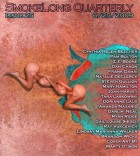“At eleven you start to know stuff, but you don’t have much context.” I love that description of eleven. How would you describe other “seminal” ages: 16, 21, 30, 40, etc. (You can pick your own ages, of course.)
At 16 you’re pretty much at the mercy of sex, which also starts to tear you out of your family’s tight orbit. At 21 you really move out into the world, and you think you know a lot, but of course, you know nothing. At 30 you’ve had some mishaps, you’ve seen some things, you feel old, but you’re still very young. And at 40 you really do have both some knowledge and context. If you’re on the right track, you’re no longer so rigid in your judgments and behavior. If you’re on the wrong track, you become even more rigid. From here you can either head toward that wonderful, almost distilled, wisdom and sweetness the best grandparents have, or go the other way and become a cranky old coot.
From where did this ranch originate?—and Corona Mary?—and all of these remarkable details?
I grew up in Colorado, though not in these kind of circumstances. But I’ve always been attracted to people on the fringes of society. There are lots of people in the mountains with their own culture that is both complex and under the radar, and I’ve hung out with folks something like the ones in the story. But I think of myself as a kind of magpie—I take a line I’ve heard one place, an image from another, and I cobble them together to make a nest where, with luck, a story can hatch.
What role have dogs played in your own life—both now and in childhood?
Dogs. I love dogs and they show up in my writing a lot. We had dogs from my earliest childhood, mostly mutts. I was given a puppy from a ranch as a child—half Australian Shepherd and half dachshund—a very strange looking little dog, but extremely smart. I named him Fang and loved him passionately. Alas, I don’t currently have a dog—one of the few things in my life I really miss.
What projects are you currently working on, in writing and in life?
I’m near to completion of a novella, about a much older person than the narrator of this story, but also involving slightly rough outsiders, humor, a little violence, and of course a dose of substance abuse. It just occurred to me that “Underfoot,” and another longer story I wrote would be nice bookends for the novella (interested anyone?). I recently wrote a very long poem about a murdered tattoo artist, and I always have several stories and poems in various stages of disrepair (and a house in disrepair too). And a backlog of work to send out, as I’m not very good about that.
Your fiction and poetry have been widely published. How has your work as a poet influenced your work with (very) short fiction?
To be honest, I’m not sure writing poetry has really influenced my short fiction writing. I consider myself a fiction writer who writes poems, and for me the process involved in each form is quite different. Though I should have known something was up when a short story I wrote won a prize for “best poem.”
That said, what I love, no matter the genre, is language that feels embodied and alive. Poetry is all about language. Writing poetry teaches concision, or what Freud called “condensation,” where every word counts. Rhythm is also extremely important, These qualites are also essential for very short fiction, and in a short piece one has the luxury of being able to hone and polish and prune out the dead wood.



 The SmokeLong Grand Micro Contest (The Mikey) is now an annual competition celebrating and compensating the best micro fiction and nonfiction online.
The SmokeLong Grand Micro Contest (The Mikey) is now an annual competition celebrating and compensating the best micro fiction and nonfiction online.